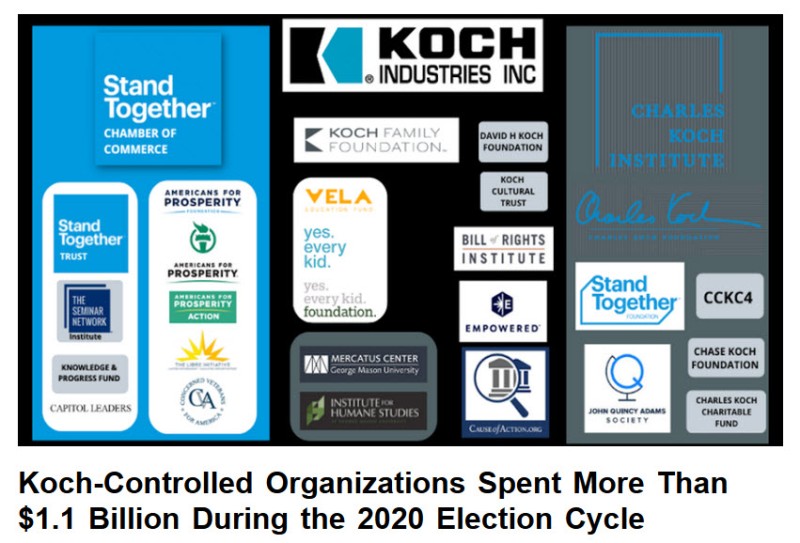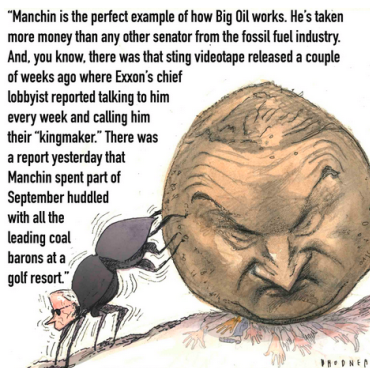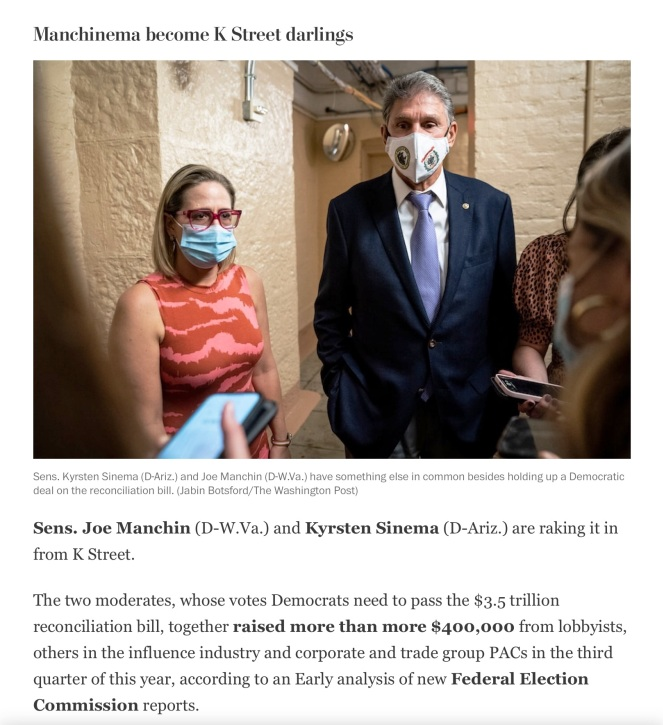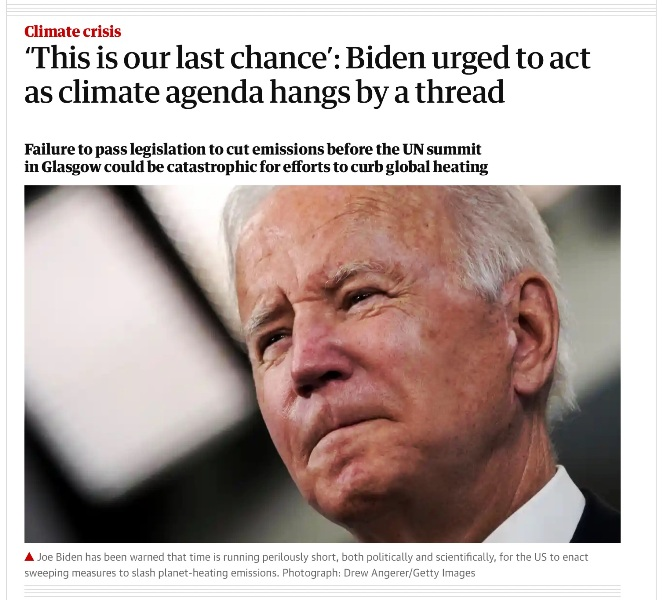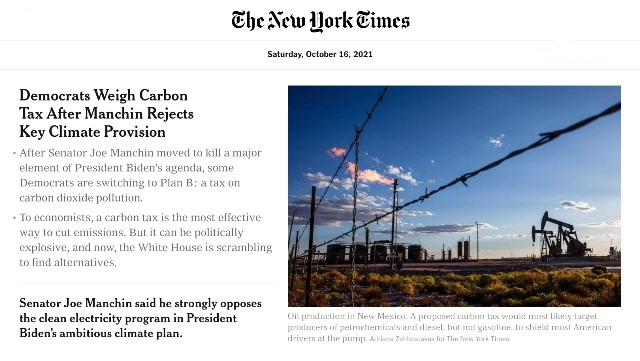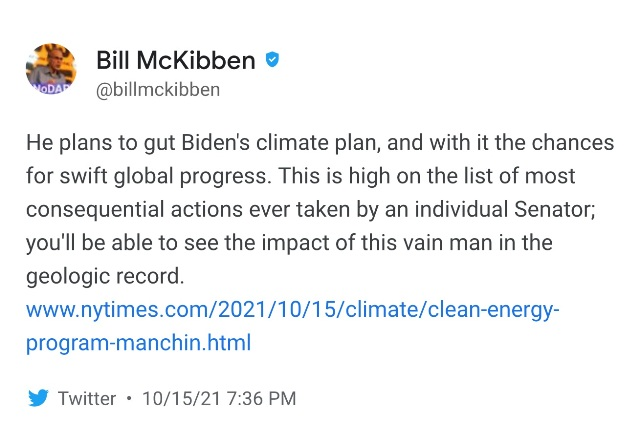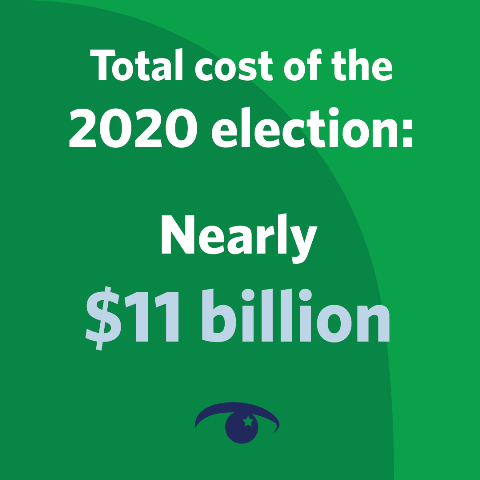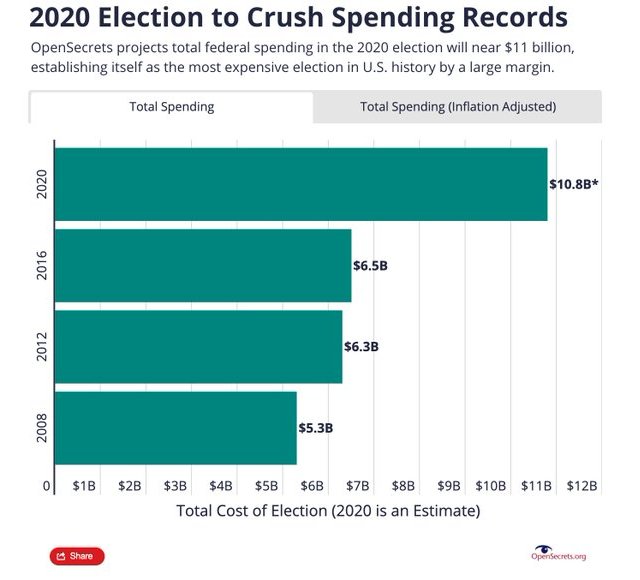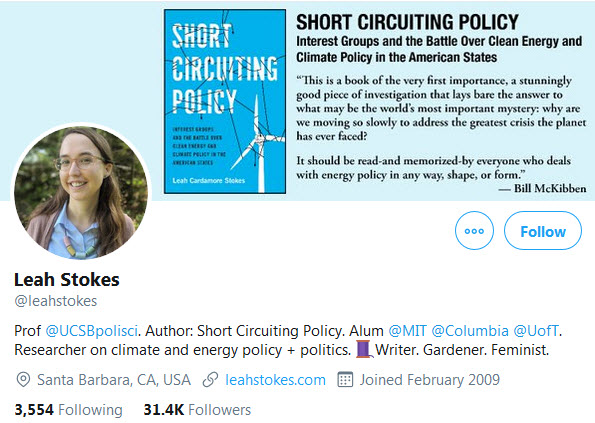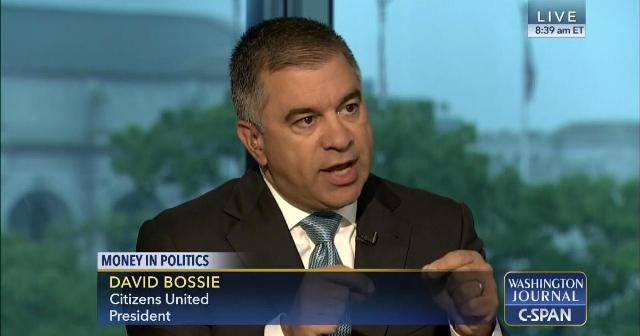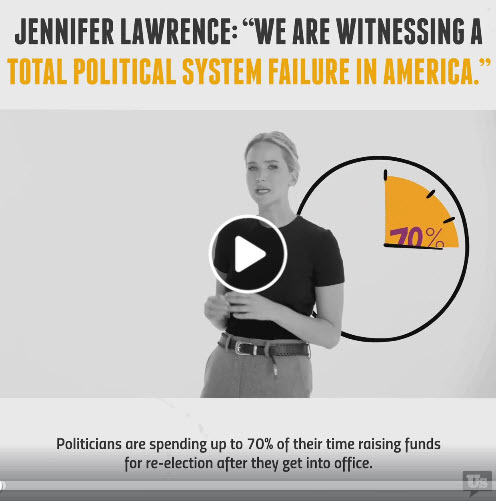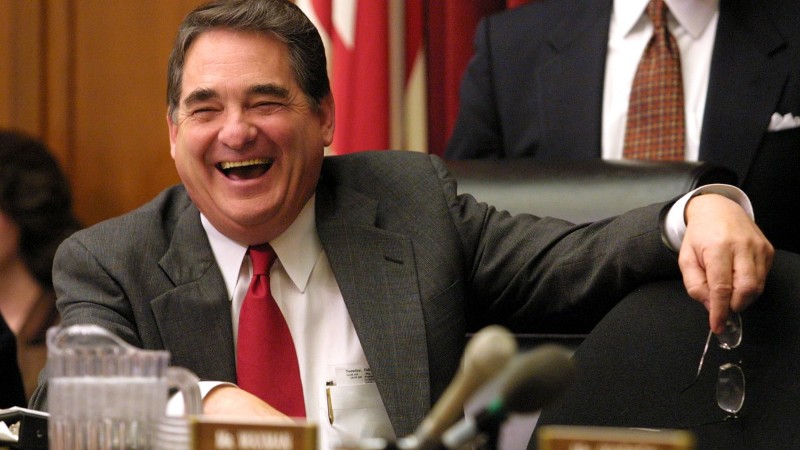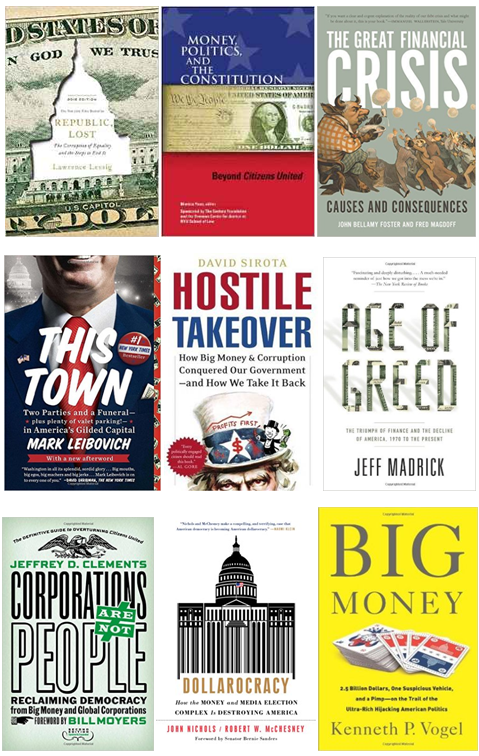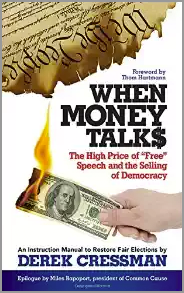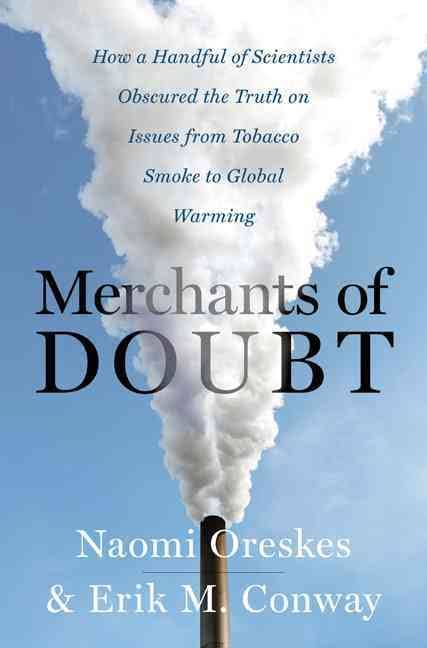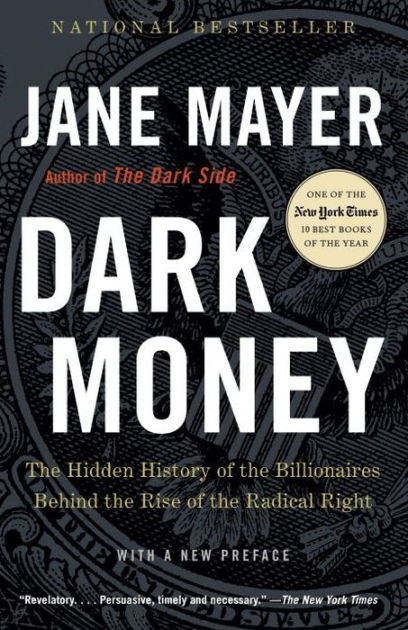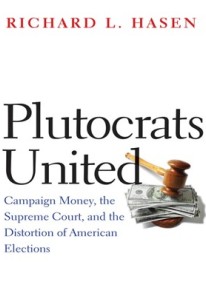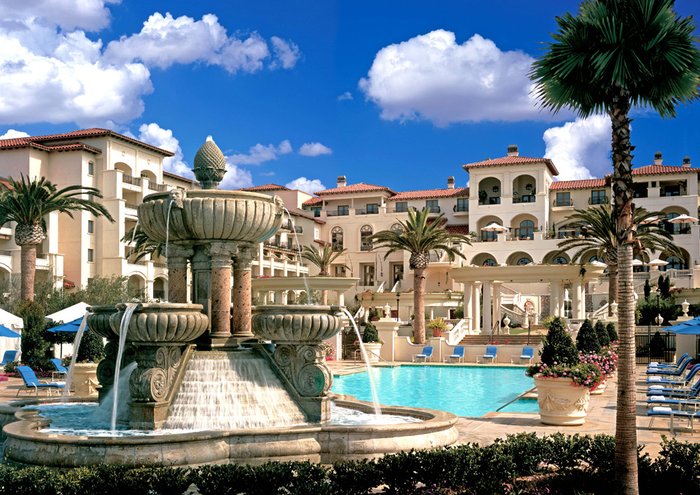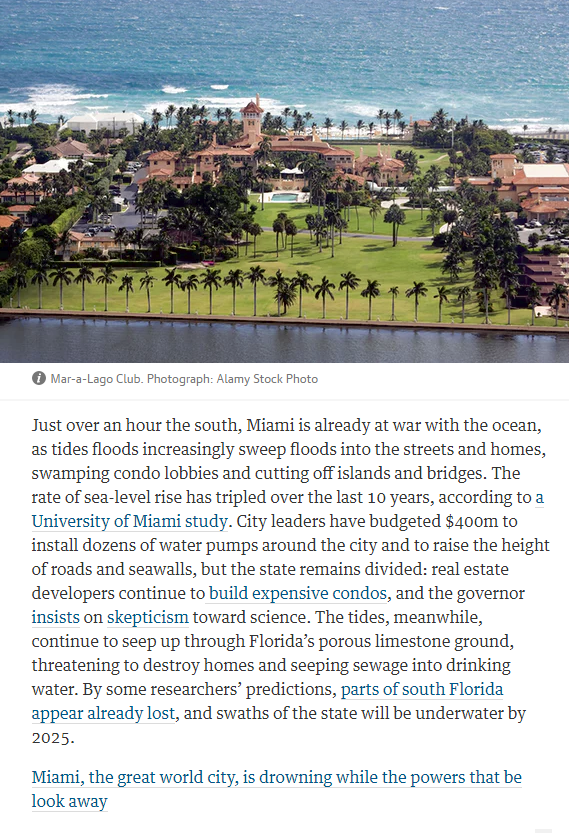Money in Politics: Difference between revisions
Siterunner (talk | contribs) No edit summary |
Siterunner (talk | contribs) No edit summary |
||
| Line 4: | Line 4: | ||
<big><big>'''PoliticoPay | <big><big>'''PoliticoPay, Unfortunately, Is the Name of the Game'''</big></big> | ||
: It's Pay2Play, Money & Politics, It's the Way of the USA | : It's Pay2Play, Money & Politics, It's the Way of the USA | ||
Revision as of 23:26, 22 August 2022
PoliticoPay & the Business of Politics in the USA
PoliticoPay, Unfortunately, Is the Name of the Game
- It's Pay2Play, Money & Politics, It's the Way of the USA
····················································
Brennan Center for Justice explains the U.S. Supreme Court 'Citizens United' decision
New York University School of Law
"Informed citizens are our democracy’s best defense"
The Citizens United v. Federal Election Commission (is) a controversial decision that reversed century-old campaign finance restrictions and enabled corporations and other outside groups to spend unlimited funds on elections.
While wealthy donors, corporations, and special interest groups have long had an outsized influence in elections, that sway has dramatically expanded since the Citizens United decision, with negative repercussions for American democracy and the fight against political corruption.
··········
2022
Steven J Schmidt - GreenPolicy360 / SJS: The thing is the future doesn't vote. Future generations don't influence, ante up dollars or deal out megadollars to politicos... the #PoliticoPay and #MoneyinPolitics game is a U.S. high stakes game played today. Quid pro quo, it is a pay-to-play politics as Richard Jacobs accurately describes in his book, a 'Democracy of Dollars'.
Fact is, future generations will face the results of today's Money in Politics barter.
And yes, of course we have options, choices that can change the future.
Thinking Longterm
- ··································
Thinking Return on Investment (ROI)
PoliticoPay...
Money in Politics: Koch Organizations Spending in 2020 US Election Cycle
························································································································································
ALEC Links:
···············································································································
More on $$$ and an 'Unholy Barter' from Jane Mayer, author of Dark Money
The Slime Machine Targeting Dozens of Biden Nominees
Via the New Yorker / April 2022
The dark money group... the American Accountability Foundation. An explicit purpose of the A.A.F.—a politically active, tax-exempt nonprofit charity that doesn’t disclose its backers—is to prevent the approval of all Biden Administration nominees...
Tom Jones, the A.A.F.’s founder and executive director, is a longtime Beltway operative specializing in opposition research. Records show that over the years he has worked for several of the most conservative Republicans to have served in the Senate, including Ron Johnson, of Wisconsin; Ted Cruz, of Texas; Jim DeMint, of South Carolina; and John Ensign, of Nevada, for whom Jones was briefly a legislative director. In 2016, Jones ran the opposition-research effort for Cruz’s failed Presidential campaign. When I asked Jones for an interview, through the A.A.F.’s online portal, he replied, “Ms. Meyers . . . Go pound sand.” Citing an article that I had written debunking attacks on Bloom Raskin from moneyed interests, including the A.A.F., he said, “You are a liberal hack masquerading as an investigative journalist — and not a very good one.” Jones subsequently posted this comment on his group’s Twitter account, along with my e-mail address and cell-phone number.
·····································
December 2021
Bill McKibben, Quoted Nov. 2, 2021, Interviewed on Democracy Now
Note from GreenPolicy360:
As vital climate provisions of President Biden's Build Back Better Act are now in grave danger, we would ask readers to consider the above quote from an old friend (and political advisor back in the day). Bill McKibben's thoughts on the impact of West Virginia Senator Manchin are blunt and worth considering by anyone who cares about democracy, the nation, and our future as together we face the escalating and existential dangers of #ClimateCrisis.
This is another reminder to our readers, as we often have put 'Quid pro Quo' dealings into the spotlight, how Money in Politics, PoliticoPay, is the name of the game in Washington D.C. ... The government is awash with influence-buying dollars, hundreds of millions week by week, big contributors and so-called 'dark money' coursing thru the system, adding up to billions every election cycle.
···················································································································
November 2021
Code for Democracy
Our search, visualization, and alerting tools make it easy to investigate relationships between campaign contributions, political narratives, and legislative outcomes
Code for Democracy Debuts New Tool to Track Money in Politics
The web tool aims to make it easier to investigate campaign contributions, lobbying, nonprofit spending, and more, and to get alerts on new data
·······························
October 2021
Historic Levels of Political Spending and #PoliticoPay from Lobbyists, Online Solicitations, PACS, 'Deep Pockets' and 'Dark Money'
Money Floods the Race for Control of Congress (NYT/Oct 16, 2021)
K Street is a major thoroughfare in the United States capital of Washington, D.C. known as a center for numerous lobbyists and advocacy groups. In political discourse, "K Street" has become a metonym for Washington's lobbying industry since many lobbying firms were traditionally located on the section in Northwest Washington which passes from Georgetown through a portion of Downtown D.C
····························································································································
Not $11 Billion, $14.4 Billion
Final Accounting Is Far Beyond Projected Spending
Political spending in the 2020 U.S. election totaled $14.4 billion, more than doubling the total cost of the record-breaking 2016 presidential election cycle.
That’s according to OpenSecrets’ analysis of Federal Election Commission filings...
The presidential election drew a record $5.7 billion, congressional races saw a stunning $8.7 billion in total spending.
Nine of the 10 most expensive Senate races ever occurred in the 2020 cycle. Five of the 10 most expensive House races happened in 2020. The rise in congressional spending started in the 2018 cycle, which smashed midterm spending records. All of the 10 most expensive House and Senate contests took place in one of the last two election cycles.
Money talks to climate polluters
How does one make the heads of the worst carbon-emitting companies listen?
Anne Simpson, director of global governance at CalPERS, California’s public employees’ pension fund and a noted activist investor, has learned a few things about encouraging fossil fuel companies to clean up their act. By combining forces with other like-minded investors to form Climate Action 100+—which together oversee about $52 trillion in investments—she has found that major stockholders can help to influence the decisions made by companies, when it comes to dealing with climate change.
“Finance plus science is a pretty powerful combination,” she says in this interview with the Bulletin’s Dan Drollette Jr.
Some critics worry that oil companies have used CalPERS and Climate Action 100+ as a fig leaf, so they can project the appearance of taking climate change seriously, while giving the merest outlines of climate change ambitions 30 years in the future. Here, she responds to this critique and tells of a newly launched effort to combat such tactics.
(Editor’s note: This interview has been condensed and edited for brevity and clarity.)
Dan Drollette Jr: Would you bring our readers up to speed on who you are, and what you do at CalPERS? For that matter, what is CalPERS?
Anne Simpson: CalPERS is a shorthand way of saying California Public Employee’s Retirement System. The important thing about CalPERS is that we are both a health system and a pension system for 2 million public workers in California—emergency responders, firefighters, police, teachers, judges, but also janitors.
And I think the notable feature about CalPERS is just how very big CalPERS is.
At this point—early 2021—our funds for the main trust as we call it, is over $400 billion, which makes CalPERS one of the top 10 largest pools of money in the world. And we say asset owner money here, not money which is handed over to investment managers. But money where we have a board with a duty, we call it a fiduciary duty. And they have to oversee the investments of that money, so that when we’re paying pensions now, we’re helping our members have retirement security.
Drollette: Where does the investment part come in? And how does that relate to dealing with climate change?
Simpson: Investment is key to delivering those retirement benefits to our members; for every dollar we pay out, about 55 cents of it comes from investment returns. So it’s the single largest source of money into the benefits that we pay. And that’s why CalPERS looks at its investments with this very long-term horizon, really thinking very hard about risk to our investments.
To give a sense of the scale of what CalPERS is dealing with, every year we pay out something like $25 billion in benefits.
Drollette: What exactly is the role of CalPERS, when it comes to the Climate Action 100+, which I believe your organization is the primary driving force behind?
Simpson: Yes, that’s right. Climate Action 100+ comes out of the work that we did at CalPERS a while ago. To give you some background, we have a $400 billion portfolio, and we wanted to find out where are the greenhouse gas emissions coming from? Because after all, we own those emissions.
So, what we did first was to look at all of the approximately 10,000 companies that are contained in our investment portfolio, and then calculate the emissions coming from each of those companies, all around the world.
And out of those 10,000 companies, about 100 were responsible for the fast bulk of greenhouse gases. Which was an incredible insight into where we needed to focus our attention.
Consequently, what we did next at CalPERS was reach out to other investors, including pension funds like ours but also investment managers—the folks who take the money from pension funds and invest it on their behalf—and find out if they saw the same picture. Which they did.
We then had an opportunity to come together to tackle the issue.
Drollette: What happened next?
Simpson: We had a series of meetings, hosted at the United Nations. And we decided that we should all become signatories to a new initiative, which would ask these companies to do three things, regardless of whether they were in Asia, Europe, or in North America:
One, that these companies make sure that their board of directors takes responsibility for climate change. In other words, this is not something for their public relations department to handle, or just for the engineers. It’s got to be at the board level.
And that matters, because we as investors in these companies have voting rights. We vote for the appointment of these directors—or against these directors coming back in, if we don’t think they’re doing the job for long-term investors like us. That’s number one.
Number two, we identified the companies that we called the “systemically important carbon emitters”—in other words, the ones that are going to cause a system-wide impact, if they don’t get their emissions down. And we requested that these companies set targets to reduce their emissions, consistent with holding global warming to 1.5 degrees Celsius. That’s very ambitious, but I’m glad to say that out of the list of companies, 50 of them have made that commitment to us all.
The third thing we’re asking for is disclosure of their carbon emissions. And there is a framework for disclosure that came out of the work of the Financial Stability Board’s working group on this issue, known as the Taskforce on Climate-related Financial Disclosure (CalPERS 2020). They have a nice framework to have companies report on what’s going on with their climate change ambitions.
So, we have those three requests: the board, the targets, and the carbon emissions’ disclosure.
We started with maybe only about two dozen fellow investors during the planning stages; we now have over 500 investors who’ve joined Climate Action 100+. And in total, the signatories to that initiative—in other words, those who support it—are responsible for about $52 trillion of investments in total.
Read the Full 'Climate Change Power of Investment Managers' Interview at The Bulletin
○ ○ ○ ○ ○ ○ ○ ○ ○ ○ ○ ○ ○ ○ ○ ○ ○ ○ ○ ○ ○ ○ ○ ○ ○ ○ ○ ○ ○ ○ ○
What companies need to be pressured by money managers?
Lowering carbon emissions is critical to directly confronting the #ClimateCrisis
10 biggest carbon-dioxide emitting firms in the world
20 companies have contributed over a third of all carbon emissions since 1965
100 companies responsible for 71 percent of global carbon emissions
Carbon Majors Database Report / 2017
○ ○ ○ ○ ○ ○ ○ ○ ○ ○ ○ ○ ○ ○
Influence of Big Money
···················································································································
A Case Study: Short Circuiting the Law
Big Money and Its Deep, Distorting Impact on U.S. Politics
Leah Stokes@leahstokes
July 21, 2020 / BREAKING NEWS: The FBI just arrested Ohio Speaker Larry Householder in connection with *$60 MILLION* in bribes linked to the BILLIONS he jammed through last summer for FirstEnergy's coal bailout.
Corruption. Plain and simple. Read all about it in my book.
A quote from an advocate in my book was *very* prescient with hindsight: "the real owners of FirstEnergy Solutions are hedge funds, who are gamblers. They see distressed assets and they put in $60 million into lobbying to get a return for $1 billion."
HB6... It also gutted energy efficiency and renewables.
Leah Stokes Retweeted Brian Kahn@blkahn
"We knew for quite a while that Larry Householder was doing the bidding of FirstEnergy" - @leahstokes
On the wild bribery case coming out of Ohio right now... #MoneyinPolitics
FBI Arrests Ohio Republicans in Alleged $60 Million Bribery Case for Coal and Nuclear Bailout
·······························
PoliticoPay
@PoliticoPay.com
Reviewing the Devastating Impact of Big Money in Politics
A handful of wealthy donors dominate electoral giving and spending in the United States. We need limits on campaign finance, transparency, and effective enforcement of these rules — along with public financing.
Today, due to Supreme Court decisions like Citizens United, big money dominates U.S. political campaigns to a degree not seen in decades. Super PACs allow billionaires to pour unlimited amounts into campaigns, drowning out the voices of ordinary Americans. Dark money groups mask the identities of their donors, preventing voters from knowing who’s trying to influence them. And races for a congressional seat regularly attract tens of millions in spending.
·····································································································
U.S. Supreme Court: An Enabling Court Decision
• https://en.wikipedia.org/wiki/Citizens_United_v._FEC
David Bossie
David Bossie, the figure behind the 'money gate' Citizens United decision of the U.S. Supreme Court
Opening the door wide to the influence of 'quid pro quo' transaction politics and deep corruption...
The political system responds top to bottom, everyday is a political pay to play money game
• https://www.politico.com/story/2019/05/07/trump-campaign-david-bossie-1309709
○
David Bossie, deputy campaign manager/Trump presidential campaign
According to Internal Revenue Service filings first reported by Axios, only $425,442 of the $15.4 million David Bossie’s group spent over the past two years (2017-2018) went toward boosting conservative political candidates by contributing to their own committees or running supportive advertisements. The remaining money was spent on outside consultants with close ties to Bossie and on books he authored with Corey Lewandowski, the former manager of Trump’s 2016 campaign.
An adviser to the Trump campaign said: “The thing Trump hates is for anyone to make money off his name. He hates others using the Trump name for personal gain. He’s a branding and marketing genius. Rule number one of brand marketing is to be in control of your brand at all times.“
····················································································
Corruption Crisis in U.S. Politics: Watch the Video
-=-=-=-=-=-=-=-=-=-=--=-=-=-=-=-=-=-=-=-=--=-=-=-=-=-=-=-=-=-=-=-=-=-
U.S. Supreme Court Decisions Enable Political Barter
Billions of dollars unleashed to spend on influence peddling and political attacks
Federal, State & Local, Super PACs, "Dark Money", "Pay-to-play", "Dialing for dollars", Media manipulation...
>The three decisions that opened the doors wide and profoundly changed U.S. politics: Buckley v. Valeo; Citizens United v. FEC; McCutcheon v. FEC
- Buckley v. Valeo / https://en.wikipedia.org/wiki/Buckley_v._Valeo
- Citizens United v. FEC / https://en.wikipedia.org/wiki/Citizens_United_v._FEC
- McCutcheon v. FEC / https://en.wikipedia.org/wiki/McCutcheon_v._FEC
-=-=-=-=-=-=-=-=-=-=--=-=-=-=-=-=-=-=-=-=--=-=-=-=-=-=-=-=-=-=-=-=-=-
Americans’ Views on Money in Politics
-=-=-=-=-=-=-=-=-=-=--=-=-=-=-=-=-=-=-=-=--=-=-=-=-=-=-=-=-=-=-=-=-=-=-
"Money is the mother's milk of politics."
-- Jesse Unruh, California
Nation on the Take: How Big Money Corrupts Our Democracy
Via Bill Moyers / Money & Politics --- Read an Excerpt from the Book
Q&A with Wendell Potter and Nick Penniman -- The System Is Rigged
-=-=-=-=-=-=-=-=-=-=--=-=-=-=-=-=-=-=-=-=--=-=-=-=-=-=-=-=-=-=-=-=-=-=-
Money, Politics, the Day to Day in the USA
- Brennan Center / https://www.brennancenter.org/issues/money-politics
- Center for Responsive Politics / http://www.opensecrets.org/
- Democracy for Sale: Money-Politics / https://billmoyers.com/spotlight/money-politics/
- League of Women Voters / https://www.lwv.org/voting-rights/money-politics
- Our Revolution / https://ourrevolution.com/issues/big-money-in-politics/
- People for the American Way / http://www.pfaw.org/fighting-big-money-in-politics/
- Public Citizen / https://www.citizen.org/our-work/government-reform/money-politics
- Why Money in Politics Is So Important - Campaigns & Elections /
-=-=-=-=-=-=-=-=-=-=--=-=-=-=-=-=-=-=-=-=--=-=-=-=-=-=-=-=-=-=-=-=-=-=-=-=-=-=-=-=-
Players, Politics and Policy: Pay to Play, Pay to be a Maker of US Law
- Mega-Donors At the Top of the Pyramid
Top Individual Contributors: Reported Federal Contributions (2018)
1. Adelson, Sheldon G. & Miriam O. Las Vegas, NV $55,743,700
Runner-up: The Koch brothers, Charles and David
2016 Mover & Shaker: Mercer, Robert
Note: WASHINGTON / 2014 — The wealthiest Americans are playing a larger role in politics these days, thanks to campaign finance laws loosened by the Supreme Court’s conservative majority. Billionaires can now make unlimited contributions to super PACs, or, if they prefer discretion, to nonprofit groups that don’t disclose their donors.
At the same time, the rich are making contributions directly to candidates and political parties. In fact, the Supreme Court ruled in McCutcheon v. Federal Election Commission that those with the means may contribute to as many candidates and political party committees as they choose. See "Dark Money
-=-=-=-=-=-=-=-=-=-=--=-=-=-=-=-=-=-=-=-=--=-=-=-=-=-=-=-=-=-=-=-=-=-=-=-=-=-=-
=-=-=-=-=-=-=-=-=-=-=-=-=-=-=-
When Money Talks
by Derek Chessman
Berrett-Koehler Publishers (January 2016)
ISBN-13: 978-1626565760
ISBN-10: 1626565767
http://www.derekcressman.com/whenmoneytalks
http://billmoyers.com/story/will-america-be-able-to-overturn-citizens-united/
The connection between money and politics in Washington DC and throughout the US is a matter of fact. The extent of lobbying, the power of lobbyists and well-funded (and often secretive) interest groups, Super Pacs and individual billionaires have risen to impact most every substantive policy element of the US government.
Campaign financing is acknowledged as a sine qua non of realistic politics. Candidates are products of campaign 'war chests' and elected officials literally devote most every day to fundraising. Campaign cycles every two and four years approach new political campaign spending records, in the billions at the presidential level.
As a result of quid pro quo politics, a payback system that directly ties money to policy, the public's business and common good of environmental protection are systematically neglected.
"When Money Talks" casts a light on this quotidian reality, the business of political power and the escalating, extensive costs of pay-to-play politics.
According to Derek Chessman, without a serious change in how politics is conducted in the US, the future portends crisis.
It is difficult to argue with this -- that the US democratic system of governing is at a crossroads.
=-=-=-=-=-=-=-=-=-=-=-=-=-=-=-
Fossil Fuel Money
"Apparently, impending catastrophe doesn't mean much to some of the United States' wealthiest people. Once again a report has arisen documenting how fossil fuel millionaires pumped more than $100 million into Republican presidential super PACs last year. That means that $1 out of every $3 donated to Republican candidates coming from hyper-rich individuals came from people who made their fortunes from fossil fuels. In boosting GOP politicians, these funders were simply acting to protect their cash cows from those of us who happen to give a damn about the planet.
"A recent report by the Center for American Progress Action Fund shows that more than six out of every 10 Americans are represented by someone in Congress who denies the reality of Anthropogenic Climate Disruption (ACD). According to the report, 59 percent of the Republican House caucus and an amazing 70 percent of the Republicans in the Senate deny ACD is real. The report also reveals that, according to the US Census, 202,803,591 Americans are represented by an ACD denier."
... Merchants of Doubt, Money in Politics, Disinformation, Misinformation
=-=-=-=-=-=-=-=-=-=-=-=-=-=-=-
A Flood of Money in Politics
The dominance of influence of big money in U.S. politics is becoming an issue-of-issues, how a handful of ultra-rich political players can change American politics, policies, and ultimate outcomes. Media coverage of the issue is increasing and is sharply drawn across the political spectrum. Two recent books stand out covering the 'dark' and billion-dollar plus 21st century money-in-politics arena... Washington DC is awash with dollars lobbying, drafting legislation, writing and rewriting 'mark-ups', setting agendas, and shaping campaigns. Every state has targeted legislative initiatives that are coordinated across the nation by monied groups. 'Legislative exchanges' like the "American Legislative Exchange Council" are developing model laws as templates that are funded state-by-state. Voting/districting/apportionment create legislative districts that are the result of well-organized and -funded campaigns. Many of the most high profile political headlines have individual players behind the scenes and spending hundreds of millions in supporting activities.
Think-tanks with agendas, media, educational influence at work -- the modern money game has powerful interests that act to shape U.S. politics, domestic and foreign. The unprecedented power of the U.S. military, from 800 overseas bases and nuclear arsenal, to dealing with interests at home with wealth, inequality, poverty and infrastructure all have at core the influence of dark money and big money.
=-=-=-=-=-=-=-=-=-=-=-=-=-=-=-
Dark Money
- The Hidden History of the Billionaires Behind the Rise of the Radical Right
By Jane Mayer
Publisher: Doubleday (January 19, 2016)
ISBN-10: 0385535597
ISBN-13: 978-0385535595
Dark Money / NYT - January 2016]
What Happened to Jane Mayer When She Wrote About the Koch Brothers / NYT - January 2016
Dark Money is “Revelatory. . .persuasive, timely and necessary. . . . [O]nly the most thoroughly documented, compendious account could do justice to the Kochs’ bizarre and Byzantine family history and the scale and scope of their influence.”
: — The New York Times
[D]eeply researched and studded with detail. . .it seems destined to rattle the Koch executive offices in Wichita as other investigations have not. [Dark Money] could inspire a more intense discussion about the impact of this wealthy conservative cadre on the Republican Party and the recent course of American politics.” : — Washington Post
“[B]ombshells explode in the pages of Dark Money, Jane Mayer’s indispensible new history . . . .combines her own research with the work of scores of other investigators, to describe how the Kochs and fellow billionaires like Richard Scaife have spent hundreds of millions to ‘move their political ideas from the fringe to the center of American political life.’”
- — The Guardian
“A careful exposé. . . . Mayer closely documents her charges. . .while delivering a swiftly flowing narrative. . . . A valuable contribution to the study of modern electoral politics in an age that Theodore White, and perhaps even Hunter S. Thompson, would not recognize.”
- — Kirkus
=-=-=-=-=-=-=-=-=-=-=-=-=-=-=-
Big Money:
- 2.5 Billion Dollars ... On the Trail of the Ultra-Rich Hijacking American Politics
by Kenneth Vogel
PublicAffairs (June 2014)
ISBN-10: 1610393384
ISBN-13: 978-1610393386
From Editorial Reviews
James Kwak, New York Times Book Review
- “What Vogel gives us is a detailed look at this new political landscape, where voracious money-sucking beasts mingle with megadonors hungry for behind-the-scenes access…Whether we are witnessing is a tectonic shift or a gradual evolution, ‘Big Money’ amply and colorfully makes the case that our elected leaders are increasingly dependent on a small number of seven-digit checks written by a few dozen members of the 0.01 percent, and therefore politics are becoming a type of thoroughbred horse racing.”
Barton Swaim, Wall Street Journal
- “With ‘Big Money’—-which takes up the Kochs and other rich political contributors, including Sheldon Adelson, Rob McKay and liberal Texas lawyers Steve and Amber Mostyn—-Mr. Vogel has succeeded in doing what I, for one, didn't think possible. He has made the subject of money in politics entertaining—indeed, gripping. He does this by a combination of factual analysis, eyebrow-raising scoops and zany stories.”
Michael Levin, Huffington Post
- “Vogel is a master of Politico's deliciously snarky political style and offers us glimpses of our elders and betters at their least dignified. …Vogel's Big Money is a must-read if you are concerned about politics and the future of this country.”
Bethany McLean, Washington Post
- “[Vogel] knows the characters and gets the game. Want to understand Mitt Romney’s fundraising operation, how Jim Messina mobilized big donors for Obama’s 2012 campaign or the war chest that is already growing underneath Hillary Clinton? Vogel tells the stories. He also offers lots of detail on one of the most fascinating frenmities in modern right-wing politics: Karl Rove and the Koch brothers. And he offers great facts to bolster his overall claim...To his great credit, Vogel is also pretty even-handed...This is a book by an insider, for insiders.”
Daniel Ben-Ami, Financial Times
- “Kenneth Vogel, chief investigative reporter for Politico, the news organisation, does an excellent job in untangling this story. Much of the book consists of reportage, with him trying to attend secretive meetings between ultra-wealthy donors and electoral candidates seeking funding. Often he was barred from entering or ejected after being identified as a journalist….He is commendably non-partisan in his reporting. Vogel sketches the shadowy fundraising worlds of both of the main parties. He also reports on the intense factional rivalry that sometimes exists within their respective camps.”
Walter Shapiro, Brennan Center for Justice
- “Vogel's paparazzi tactics -- coupled with relentless traditional reporting -- have made Big Money the smartest and most revealing book chronicling the Super PAC era. Instead of predictable legal analysis and a mind-numbing march of statistics, Vogel tries to grasp what motivates the wealthy to invest so heavily in Super PACs. And his answers do not fit into the neat ideological cubbyholes of either campaign reformers or believers in the nonsensical, but powerful, doctrine that money equals free speech.”
Chris Moody, Yahoo! News
- “Pull[s] back the curtain on some of the most important players... Through impressive sourcing, Vogel’s work...offers a peek into the secretive universe of megadonors in the post-Citizens United era.”
The Economist's Democracy in America blog
- “A highly entertaining account of the adventures of billionaires in politics.”
Joel Connelly, SeattlePI.com
- “Vogel manages to entertain while reporting on the politics of excess, even when things turn sinister… The most fascinating aspect of Vogel’s book is what manner of candidate big money culture produces, with a look back to 2012 and ahead at 2016... Buy Hillary’s book for your coffee table, but take 'Big Money' on vacation.”
Jim Newell, Bookforum
- “Vogel’s decision to adopt a gonzo-style approach allows us to check out our new oligarchic digs as the contractors near completion. Throughout the book, Vogel shares versions of the same first-person story that never seems to lose its alternatingly comedic and terrifying edges: Here’s a closed-door donor conference I snuck into, and here’s what happened when they found me out.”
Politix
- “Big Money is a fascinating, yet often depressing, tale about what—and who—really matter in American elections…Most books about campaign finance are dry tomes detailing the technicalities of political action committees (PACs), hard vs. soft money, and the like. It's enough to make a reader's eyes glaze over after the first chart or regression analysis. Big Money is instead an incisive, at-time hilarious, look at the very rich human beings who now dominate big-time political fundraising…To learn about who is likely to give and why, Kenneth P. Vogel's Big Money is a must-read.”
=-=-=-=-=-=-=-=-=-=-=-=-=-=-=-
Rick Hasen
=-=-=-=-=-=-=-=-=-=-=-=-=-=-=-
2016
Koch World / Return on Investment
In late January 2015, the Kochs had pledged their network would raise and spend $889 million during the 2016 cycle, a number that accounted for both educational and political spending. Yet much had changed for the Kochs in the year since that announcement, and sources say the pace of those changes has only accelerated since...
... Charles Koch provided a window into his own thinking in an interview last month with ABC’s Jonathan Karl. “When you look back over the years, over the last several cycles, hundreds of millions of dollars in electoral politics, what have you gotten for that?” Karl asked. “What’s been the return on that investment?”Investment
Koch: “What have we gotten for it? Well, I think there have been some good things, particularly at the state and local level.” “At the federal level,” he added, shaking his head, “we haven’t in any way changed the trajectory of the country.” Karl suggested it hasn’t been a very good investment. “No, no it hasn’t,” Koch replied. “It’s been disappointing.”
∞
Update / Trump's appointments --- Koch success
·············································································································
Update via The Hill / January 30, 2016 - http://thehill.com/homenews/campaign/267641-koch-network-spent-nearly-400-million-in-2015
INDIAN WELLS, Calif. – The Koch brothers’ donor network spent close to $400 million last year, and is on its way to spending an unprecedented $889 million supporting right-wing politics and causes during the 2016 cycle.
On Saturday afternoon, the Koch network assembled 500 wealthy conservatives — its largest gathering ever — at a luxury resort near the foothills of Palm Springs’ Coachella Valley.
About 150 of the donors are first-time attendees, and the rest are paid-up members of the conservative donor network, which requires a minimum annual membership fee of $100,000...
The Palm Springs retreat is the second time journalists have been allowed to attend.
···································································································
January 2016: From RNader, excerpt from blog essay:
The dominance of influence money by the plutocracy and now big business PACs, such as that of the super-rich Koch brothers, is just the beginning. The monetized minds don’t just rely on their “quid pro quo” checkbooks. They foster gerrymandering electoral districts so that politicians indentured to them pick the voters instead of a legitimate congressional district’s voters picking a candidate. And the debates now are more ratings inventory for Big Media than a discussion of major issues which remain off the table.
Presidential debates are controlled by a Commission on Presidential Debates (CPD) – a private corporation – created by the Republican and Democratic parties and funded by beer, auto, telephone and other corporations whose patronage includes lavish hospitality suites. Thus, through the cover of CPD, the two big parties control the number of debates, who is invited to participate and which reporters ask the questions before an approved audience.
This year, the monetized minds went further. Now a commercial cable or network television company decides the formats and who is in tier one, tier two or not included at all. The Big Media sponsors (Fox, CNN, NBC and others) decided that Mark Everson, who dropped out in November, was the first candidate to go to all of Iowa’s 99 counties, should be excluded from the competition because he does not have a PAC sponsor and hasn’t raised enough money. Yet he is the only Republican presidential candidate with executive branch experience. Under George W. Bush, he was head of the IRS and Deputy Commissioner of the Immigration and Naturalization Service.
Monetizing elections has predictable consequences. The ditto-head reporters, obsessed with tactics and gaffes, never ask about corporate crime, corporate welfare, the American Empire with its un-auditable Defense Department, the over $300 billion a year in computerized billing fraud in the health care industry, or why corporations are given free exploitation of our public property – such as gold and silver mines on public land , the public airwaves and the trillions of dollars of federal research given away to big business in such industries as the drug, aerospace, computer, biotech and information companies...
A Quick Look at the Monarch
Annual Koch-brothers Organized Private Fundraisers and Agenda Meetings
The 2015 annual Koch-organized summit is sponsored by Freedom Partners Chamber of Commerce, a non-profit that oversees a network of Koch-backed conservative groups... Taken together the Koch groups intend to spend $889 million in the run-up to the 2016 election boosting policies and candidates that adhere to principles like those that animate the Kochs and many of the donors gathered here.
Via Politico by Kenneth Vogel, author of Big Money
=-=-=-=-=-=-=-=-=-=-=-=-=-=-=-
Media and Money: Flashbacks and Flashforward
Getting the numbers...
Speaking to his personal relationship with Trump, Zucker acknowledged that, as head of NBC at the time, he was responsible for greenlighting The Apprentice, the reality show that made Trump a TV star. "As a New Yorker, I really understood the appeal of Donald Trump in his ability to create publicity...
Like CBS' Leslie Moonves ... Trump is great for ratings and advertising dollars --
Ratings. Clicks. Audience. Say what you will about Trump as a human being or a potential leader of the free world, he has an ineffable ability to get attention. He has called himself a “ratings machine,” and in the world of TV, ratings equal profit.
“It may not be good for America, but it’s damn good for CBS,” Leslie Moonves, chairman of CBS, said of the Trump phenomenon, according to the Hollywood Reporter.
“The money’s rolling in, and this is fun. It’s a terrible thing to say. But bring it on, Donald. Keep going.”
... a reality game show, rallies with full coverage, shocking news every news cycle, and an agenda...
- Not far from Mar-a-Lago, the U.S. president's Florida Club estate/income property, the tides are rising in Florida
=-=-=-=-=-=-=-=-=-=-=-=-=-=-=-
Nearly a billion dollars a year is flowing into the organized climate change counter-movement
Smithsonian
(2013)
=-=-=-=-=-=-=-=-=-=-=-=-=-=-=-
ALEC Links:
ALEC
American Legislative Exchange Council
Copy, paste, legislate; The Legislative Mill Factory
Via USA Today / The Arizona Republic / Center for Public Integrity -- April 2019
We looked for legislation that was written by special interests. We found it in all 50 states.
When legislators propose new laws, they don’t always write the bills themselves. Corporations, interest groups or their lobbyists often write fill-in-the-blank documents then shop them to state lawmakers.
These copy-and-paste bills are commonly known as model legislation. More than 2,100 of these bills have been signed into law in the last eight years.
Montana as One Example of Coordinated State-by-State Model Legislation by Special Interests and ALEC
ALEC is a nonprofit organization of conservative state legislators and private sector representatives. Some have referred to it as a model bill factory...
“In recent years, ALEC, the American Legislative Exchange Council, a group supporting industry and business, has been particularly controversial for the model legislative bills they are promoting in state Legislatures nationwide.”
ALEC: State-by-State Political Campaigns Using Model/Template Legislation
ALEC's task forces and policy centers publish "model policies" for states to use when drafting legislation.
• https://ballotpedia.org/American_Legislative_Exchange_Council
Model policies, coordinated, concerted political efforts
• https://www.alec.org/model-policy/
=-=-=-=-=-=-=-=-=-=-=-=-=-=-=-
American Legislative Exchange Council
• https://en.wikipedia.org/wiki/American_Legislative_Exchange_Council
ALEC provides a forum for state legislators and private sector members to collaborate on model bills—draft legislation that members may customize and introduce for debate in their own state legislatures. ALEC has produced model bills on a broad range of issues, such as reducing regulation and individual and corporate taxation, combating illegal immigration, loosening environmental regulations, tightening voter identification rules, weakening labor unions, and opposing gun control.
ALEC has nine "task forces" that generate model bills that members may customize and introduce for debate in their own state legislatures. Private sector members effectively have veto power over model bills drafted by the task forces.
Day-to-day operations are run from ALEC's Arlington, Virginia, office by an executive director and a staff of approximately 30. ALEC's bylaws specify that, "... full membership shall be open to persons dedicated to the preservation of individual liberty, basic American values and institutions, productive free enterprise, and limited representative government, who support the purposes of ALEC, and who serve, or formerly serve, as members of a state or territorial legislature, the United States Congress, or similar bodies outside the United States."
ALEC also has a "Board of Scholars" that advises staff and members. The board is composed of Arthur Laffer, an economist who served on Ronald Reagan's Economic Policy Advisory Board; Victor Schwartz, chair of Public Policy at Shook, Hardy & Bacon; Richard Vedder, economics professor emeritus at Ohio University and adjunct scholar at the American Enterprise Institute; and Bob Williams, founder of the Evergreen Freedom Foundation.
ALEC also has ties to the State Policy Network (SPN), a national association of conservative and libertarian think-tanks. SPN is a member of ALEC, and ALEC is an associate member of the SPN. SPN encourages its members to join ALEC, and many members of SPN are also members of ALEC. Some of the think tanks in the SPN write model legislation, which then is introduced at ALEC private meetings.
ALEC's website - https://www.alec.org/
- ALEC on Google - https://plus.google.com/+ALECorg
- ALEC on Twitter - https://twitter.com/ALEC_states
- ALEC on YouTube - https://www.youtube.com/user/AmericanLegislative
- ALEC on Facebook - https://www.facebook.com/alec.states/
- ALEC on LinkedIn - https://www.linkedin.com/groups/4099726/profile
○
ALEC and Politics
Google Search News and Updates on the American Legislative Exchange Council
The ALEC agenda, a powerful lobbying agenda and organizing model, often attempts to push back a green agenda...
"Bill Moyers / Renewable Energy & ALEC"
- • http://www.inthesetimes.com/article/11603/publicopoly_exposed/
- • http://www.thenation.com/article/161975/sabotaging-healthcare
- • http://www.thenation.com/article/161973/koch-connection
- • http://www.cows.org/pdf/BusinessDominationInc.pdf
- • http://article.wn.com/view/2011/07/13/ALEC_Exposed/
- • http://www.latimes.com/news/nationworld/nation/la-na-epa-states-20110714%2C0%2C5030269.story
○
• https://www.bloomberg.com/news/articles/2012-05-03/alecs-secrets-revealed-corporations-flee (2012)
• https://www.nytimes.com/2012/04/22/us/alec-a-tax-exempt-group-mixes-legislators-and-lobbyists.html (2012)
○
GreenPolicy 360 Note: The initial launch of GreenPolicy360 included references to our opposition to ALEC and its model of 'cookie-cutter' laws, written not by legislators in states and local governments, but by ALEC corporate-funded lobbyists.
The coordinated initiatives of ALEC were going around citizen-supported policies and local initiatives. We pointed this out, how ALEC was not just a lobbying organization, but was instead a legislative drafting operation. The 'bill mill' of ALEC was pumping out template bills, legislation that was, in many ways, extreme in its intent and in opposition to large majorities of citizens and forward-looking initiatives.
Policy positions and drafted laws of the ALEC organization, pushed by its supporting corporate lobbyists, oil/gas interests in particular, opposed many of the positions and policies central to the work of GreenPolicy360. Throughout the 2000's we have mounted public interest campaigns to contrast our GreenPolicy360 'model green best practices' process, open sharing of successful grassroots initiatives, projects, and legal actions as opposed to the secretive, deep funded actions of ALEC in opposition.
Over the past decade, as the inside-workings of ALEC have been brought to light, a growing number of corporations, under pressure from activist and consumer groups, have chosen to leave the ALEC organization. It is in a period of remaking itself. We will see how the new 'revised' ALEC organization goes forward, with or without transparency to start.
The GreenPolicy360 sharing network with our database and local/global exchange of green best practices will continue to go forward effectively -- and productively.
○
- Campaign Finance
- Citizen Science
- City Governments
- City-County Governments
- Climate Change
- Climate Policy
- Democracy
- Election Law
- Election System Reform
- Electoral System Reform
- Environmental Full-cost Accounting
- Environmental Laws
- Fossil Fuels
- Green Politics
- Health
- Kansas
- Legislation
- Money in Politics
- Oklahoma
- Policies
- Sea-level Rise
- State
- Sustainability Policies
- Texas
- US
- Voting
- Voting Rights
- Voting Systems
- West Virginia

